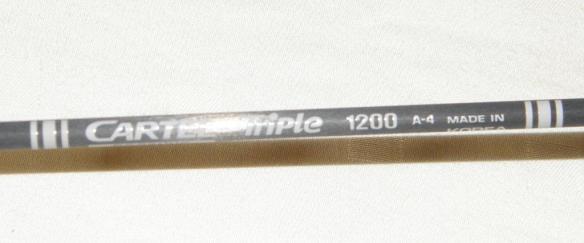One of the ongoing costs for archers is arrows, this is especially true for young archers that are still growing, and their draw length is constantly changing. Once an arrow has been cut and sized, you can only make so many adjustments to a clicker before you will outgrow the arrow length and need to purchase new ones.
One of the biggest questions for competition archers is what type of arrows should I use and what will give me the best performance for how much I can afford.
Historically, this was easy since there were only wooden arrows, however nowadays there are real choices, aluminum or carbon fiber. Aluminum shafts have been steadily replaced wooden arrows since their introduction in 1939 however in the 1980’s, carbon fiber shafts were developed as the new technology to challenge aluminum shafts.
Which one should you use? There are no easy answers; it is a personal preferences and both have advantages and disadvantages. There are four key areas to examine; durability, flexibility, diameter and price point.
Durability
Aluminum arrows can be bent easily as they collide with obstructions, other arrows and the target itself. Sometimes, bends can be repaired however; the shaft is weakened and more likely to bend again in the same spot.
Carbon fiber arrows remain straight as the day you buy them until they break. If a carbon fiber is damaged it can be extremely dangerous to shoot with and will need to be replace immediately.
As far as durability is concerned, carbon fiber arrows have the biggest advantage.
Flexibility
Aluminum Arrows are more likely to sustain damage from impact because the shafts are rigid.
Carbon arrows resist damage because they are more flexible. They easily adsorb the energy vibrations transferred during impact of the target.
For consistently accurate competition archers, carbon fiber arrows have the advantage. For beginners this is not a real factor.
Diameter
The diameter of an arrow is very important for shooting outside. The larger the arrow the greater the wind effects the arrow, this is called wind drift. Younger archers with shorter draw length can achieve greater distances be more accurate with thinner arrows. Although aluminum arrows traditionally have a wide range of sizes available thinner diameters can be achieved with carbon fiber because they are lighter.
In my opinion, this is a draw and it depends on the archers requirements.
Price Point
Obviously, this is the most important factor for a young archer, since it depends on your budget. Aluminum arrows are usually more inexpensive and therefore more widely used by young archers. However, the cost of carbon fiber arrows are dropping, such as the new Cartel Triple Arrows which are often compared to Easton’s A/C/E’s in quality however are more affordable.
 If you are interested in purchasing arrows, you need to select the appropriate arrows for your draw length and bow poundage. Having arrows that are too rigid or too flexible will yield inconsistent and unexpected results.
If you are interested in purchasing arrows, you need to select the appropriate arrows for your draw length and bow poundage. Having arrows that are too rigid or too flexible will yield inconsistent and unexpected results.
Most manufacturers provide a chart to help archers select the correct arrows. For target archers you need to consider the poundage you actually draw and not just the overall limbs poundage. For Cartel Triples (Carbon Fiber) or Cartel X-pert (Aluminum) arrows check out the following selection chart for recommended Cartel Triple and Cartel X-PERT size selections.
Cartel Recurve Arrow Selection Chart
Top number = Cartel Triple & bottom number = Cartel X-pert
| |||||||||
| Draw
Weight
| Draw Length | ||||||||
23″
|
24″
| 25″ | 26″ | 27″ | 28″ | 29″ | 30″ | 31″ | |
| 23-29 | 1200 | 1100 | 1100 | 1100 1040 | 1000 980 | 900 900 | 800 820 | 700 740 | 600 |
| 30-35 | 1200 | 1100 | 1100 1040 | 1000 980 | 900 900 | 800 820 | 700 740 | 600 660 | 500 580 |
| 35-40 | 1200 | 1100 1040 | 1000 980 | 900 900 | 800 820 | 700 740 | 600 660 | 500 580 | 400 520 |
| 40-45 | 1000 1040 | 1000 980 | 900 900 | 800 820 | 700 740 | 600 660 | 500 580 | 400 520 | 400 |
| 45-50 | 1000 980 | 900 900 | 800 820 | 700 740 | 600 660 | 500 580 | 400 520 | 400 | 300 |
| 50-55 | 900 900 | 800 820 | 700 740 | 600 660 | 500 580 | 500 520 | 400 | 300 | 300 |
| 55-60 | 800 820 | 700 740 | 600 660 | 600 580 | 500 520 | 500 | 400 | 300 | 300 |
